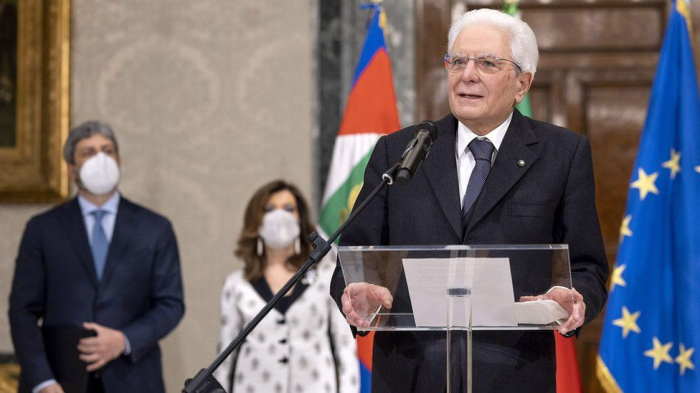Italian President Sergio Mattarella has agreed to serve a second term after coalition parties failed to agree on a compromise candidate for the office.
The 80-year-old emerged as the most popular choice after six days of often tense voting in Rome.
He had expressed a desire to leave office, but local media reported Prime Minister Mario Draghi had convinced him to stay for the "stability" of Italy.
He was formally re-elected on Saturday, following an eighth round of voting.
Speaking after Saturday evening's vote, Mr Mattarella that he felt a "sense of responsibility" to remain in office in light of the health and economic challenges facing the country.
The former Constitutional Court judge added that "duty to the nation must prevail over my own personal choices".
Mr Draghi hailed Mr Mattarella's re-election, calling it "splendid news for Italians".
"I am grateful to the president for his decision to go along with the extremely strong will of parliament to re-elect him for a second term," he added.
The parties in Italy's governing coalition agreed to re-elect Mr Mattarella after seven rounds of voting failed to produce an alternative candidate and revealed deep divisions in the cabinet.
Italy's presidency is elected through a secret vote in an electoral college of 1,009 senators, MPs and some regional delegates.
Mr Mattarella emerged as the compromise candidate after many lawmakers abstained from voting and candidates put forward by the governing parties failed to gather enough support.
Antonio Tajani, national co-ordinator for the centre-right Forza Italia party, told the BBC that support for Mr Mattarella was the only proposition most MPs agreed on.
"Mattarella has performed his function impeccably," Mr Tajani said. "In the absence of a political agreement on other people, it is right that the point of balance is still him."
It is unclear whether the 80-year-old intends to serve a full seven-year term, with some in Italy suggesting that he could step aside to allow Mr Draghi to take his place after Italian elections in 2023.
BBC
More about:
















































